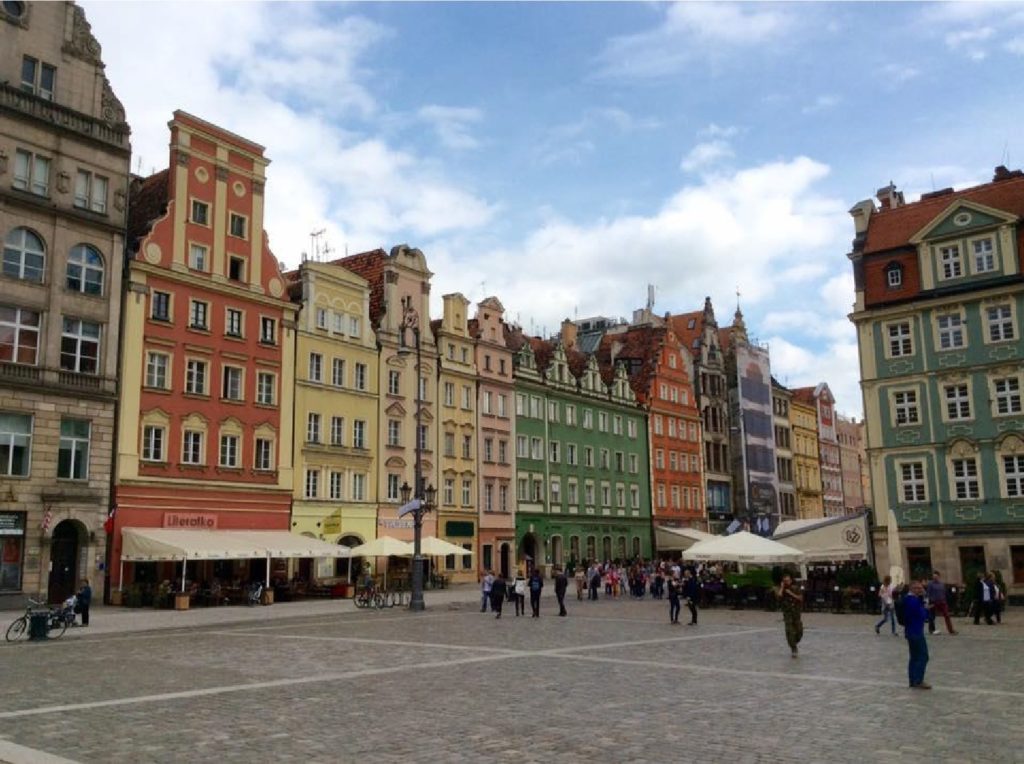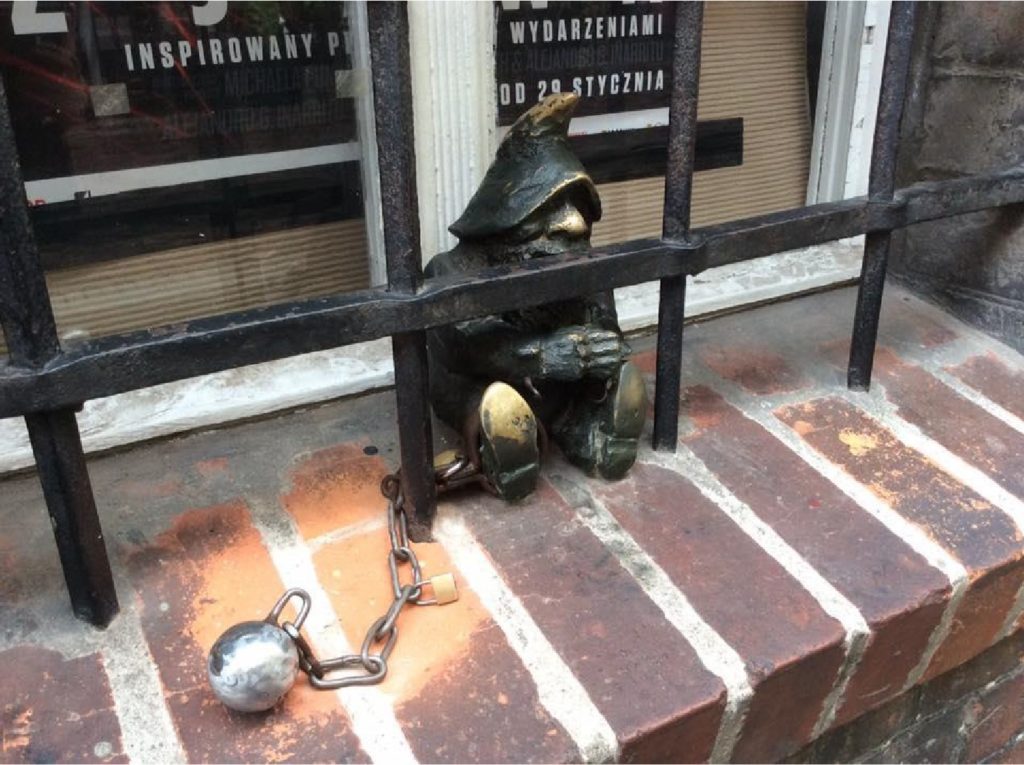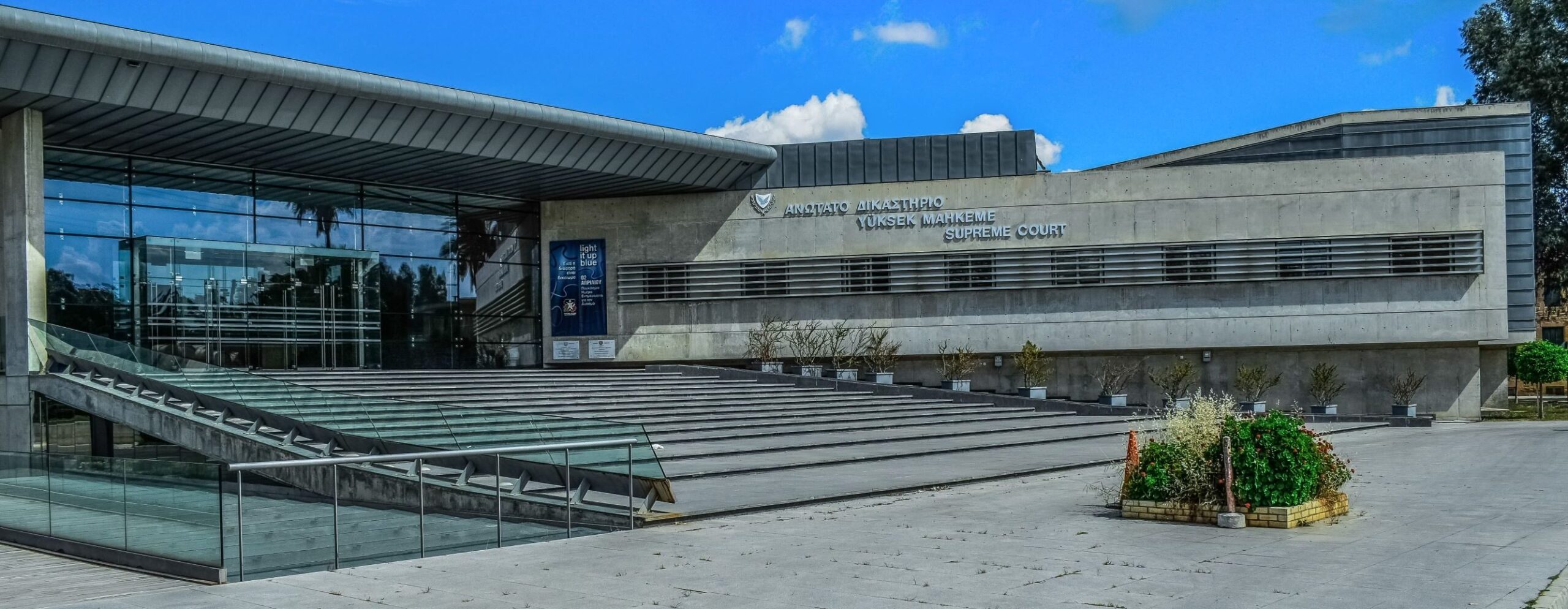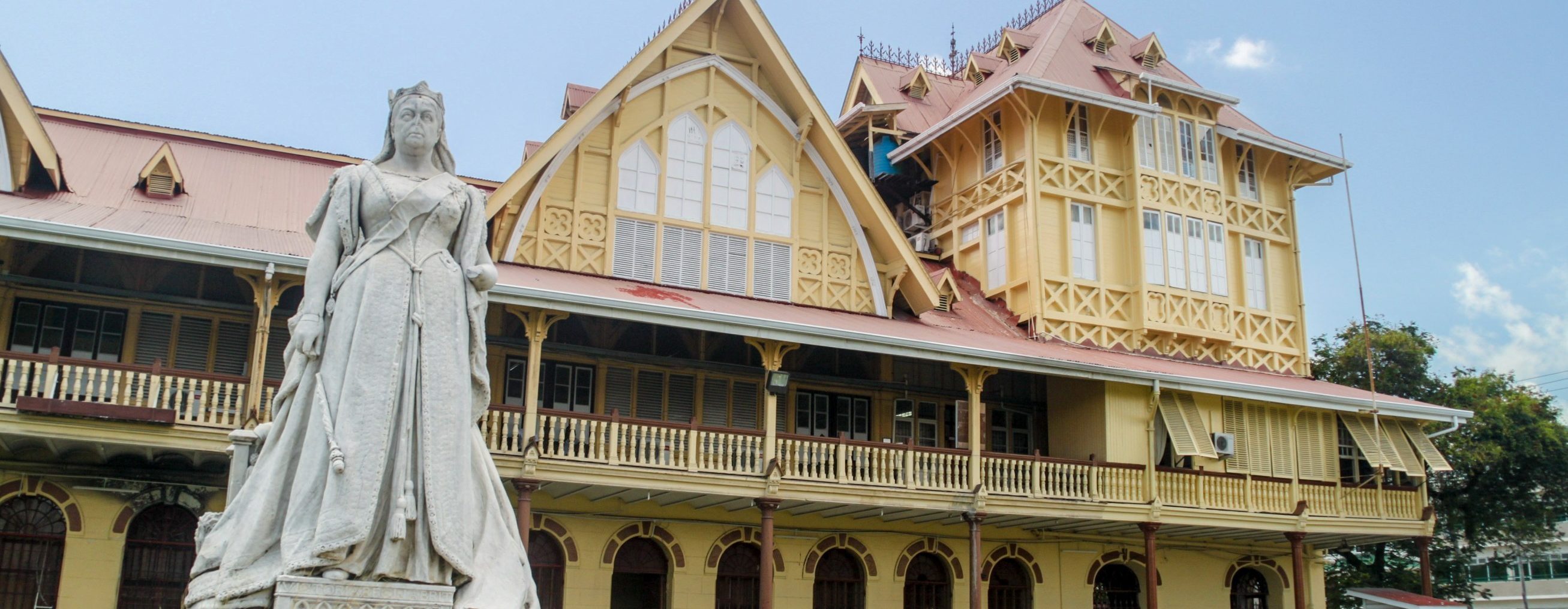Poland 2016
by Stephen Murch
Welcome to Wrocław
We participated in a two-day conference hosted by the Wrocław Bar of Legal Counsel. Those attending were: David Dabbs (L), Paul Rogers (I), Peter Clark (I), Mark Engelman (G) and the author (L).
The conference comprised two parts: the morning of the first day being attended by 100 participants with that afternoon and the whole of the second day being attended by 28 of them. Although the focus was on the Wrocław area, participants came from all over Poland, with one coming from Georgia and an observer from Moldova. The two latter guests took part in the whole conference. The Polish participants were a mixture of legal advisors and advocates, the division very broadly equating to that between solicitors and barristers in our jurisdiction although the differences as to their rights of audience is now extremely limited.
The first morning took the form of a series of presentations from our hosts and the members of the College. As those speaking did so in their respective mother tongue, simultaneous translation was available where needed. The Dean of the Bar Association of Wrocław gave a speech about advocacy. The Vice President of the National Bar Association then gave extensive thanks to the various bodies who had sponsored that part of the event.
An interesting talk was given by Aleksandra Rutkowska (Judge of the District Court in Wrocław delegated to the Ministry of Justice) on recent cases involving the ECHR. She was particularly interested in Lautsi v Italy and also Part 6 of the protocol. A recurring theme was the extent of delays in litigation throughout Poland. It seemed to be accepted that the inquisitorial system played a large part in this. We were told that a more adversarial system was slowly finding its feet, with the parties under the control of the judiciary setting the pace.

Unfortunately illness prevented Tomasz Wardynski CBE, a longstanding advocate for the work of the College, from attending. A letter was read out on his behalf in which he gave generous praise for our work and extended a warm welcome to us. He expressed the hope that the partnership between our jurisdictions for the training of advocates would continue in the years ahead. I return to this theme again below. The author has written to him to thank him for his comments.
On with the Conference
The first part of the conference concluded with a lively question and answer session of the College members in which differences in the procedure between the two jurisdictions were discussed
The second part of the conference took the form of traditional training in groups led by College members for the remaining 28 participants. It was of course conducted exclusively in English. The case of Babicz v The Warsaw Bar Company, which has been used in a number of jurisdictions, was the case study. Two case analysis sessions were run at the same time for participants acting for the claimant and defendant respectively, followed by the advocacy sessions in five groups of six. It had been intended that there be six groups, but as a result of a number of participants deciding at the last moment not to attend, the decision was taken to run five groups, with David Dabbs and the author sharing one of them.
As an aside, the reason given by our hosts for delegates deciding not to attend was the requirement that skeleton arguments be submitted in advance of the conferece. Apparently, the hosts had made clear to participants that this was intended to be for their benefit rather than ours such that a failure to do so would not be not fatal, but even this failed to convince them to reconsider.
Fluency and High Standards
It was readily apparent that the standard of English of the participants was good. Although many would require further practice before they could work in our jurisdiction, the level of fluency was high and such problems as arose over the use of English were minimal. With only very limited exception, the level of preparation was very high. Every participant attempted each of the oral advocacy exercises.
Participants appeared to have little problem with the examination in chief exercises. Although there was a tendency to use leading questions, the haste with which participants often corrected themselves before the answer was given indicated that the issue was understood and that the problem was simply a question of using a foreign language. Discussions with participants after that exercise suggested to the author that the reason for and desirability of leading questions being avoided was understood.
Cross-examination seemed to present more of a problem, going further than language difficulties. In Poland, the accepted practice is not to lead in cross-examination. The College had specifically been asked to train using the methods in our jurisdiction and we kept to this. Although there was something of an improvement during the delayed replay, it was apparent that participants found the concept more challenging. In future, in jurisdictions where leading questions are not asked, when time allows consideration might be given to running two cross examination sessions with each participant being required to deal with two witnesses. This would enable the skill to be practised more thoroughly.
The closing submissions session worked well. Some participants adopted and responded to the evidence which had been elicited of witnesses in the cross examination sessions. It was clear that everyone had thought through what was required of them.

Skeleton arguments
Not every participant had prepared a skeleton argument. At present, it is something which is neither required nor encouraged in Poland. It is fair to say that there is a move to see them employed more both in applications and trials. The standard of those who did submit skeleton arguments was generally good. Discussion with participants revealed that in addition to the suggested reading, many had carried out research of their own to find out more. A note prepared by Desmond Browne QC seems to have been found by some through the use of Google
At the time of writing, formal feedback had not been received. Participants said however that they had found that the presentations given by College members to be practical in approach and thought provoking. Many added that the presentations had caused them to review their preparation for the exercises before trying them.
The College and its predecessor have now provided training n Warsaw, Krakow and Wrocław. The sense is one of a strong bond emerging between our jurisdictions. Members of the College received a number of requests for further training to be provided in the future. Our hosts had said that this course had been oversubscribed (heightening their sense of frustration when some participants had withdrawn at very short notice), with the result that a request for a return visit in the near future was extended more than once. A representative of the Warsaw Bar Association also made a request for a visit to Warsaw in the course of the next year. The author expressed the gratitude of the College for such requests, adding that subject to funding and trainers being available, we would likely be delighted to return so as to continue to forge the links between our jurisdictions. It was suggested that requests setting out the potential number of participants and proposed dates be sent by email.
The participant from Georgia also suggested that a visit from the ICCA would be welcome. She is understood to be making enquiries of the President of the Georgia Bar.
In Conclusion
Our hosts were very generous with their time during our visit. We were taken to very good restaurants on each of the three nights. On the Saturday night, we were also taken to the impressive National Forum of Music for a memorable performance by a tribute act to Jimmy Hendrix supported by the Wrocław Philharmonic Orchestra. Izabela Konopacka, the organiser of the course, was extremely helpful in the run-up to it and ensured that everything ran smoothly during our visit. We were able to take her to lunch on the Sunday after she had kindly arranged for a guide to give us an informative tour of the city in the morning.
Finally, Phoebe Makin ensured that everything from the booking of flights, the securing of a new trainer and the liaison with our hosts leading up to the conference ran smoothly and without issue. We are very grateful to her for her considerable assistance.


